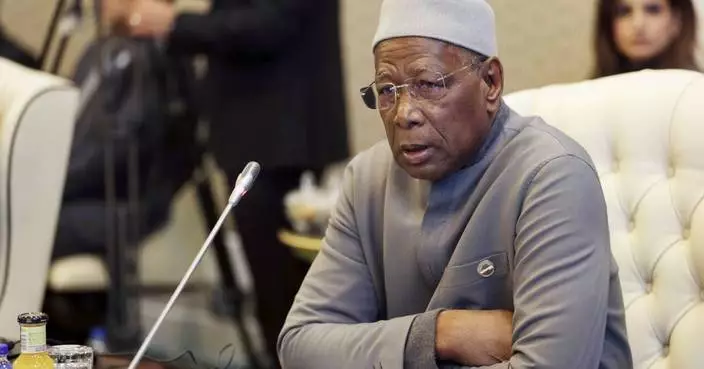Just days after declaring a “final,” decisive battle for the capital Tripoli, heavy fighting raged over a 24-hour period between rebel Libyan commander Khalifa Hifter and an array of militias loosely allied with the U.N.-supported government based there, officials said Saturday.
The fresh bout of fighting comes after Hifter, the leader of the self-styled Libyan National Army, declared Thursday that the “zero hour” of the battle for Tripoli had begun, nearly eight months since he began his offensive to take the city.
Mercenary fighters on both sides played a crucial role in the most recent offensive.
The LNA media office shared footage of reinforcements arriving in Tripoli, including ground troops and armored vehicles, and of clashes in the southern areas. It said Hifter's forces took control of al-Tawghaar town, just south of the city. However, Tripoli-based forces disputed the claim.
The fighting has threatened to plunge Libya into another bout of violence rivaling the scale of the 2011 conflict that ousted and later killed longtime dictator Moammar Gadhafi. In the chaos that followed, the country was divided, with a weak U.N.-supported administration in Tripoli and a rival government in the east aligned with the LNA.
Spokesman Ahmed al-Mesmari said the LNA also launched airstrikes overnight against an air base at the Air Force Academy in the western city of Misrata, targeting military warehouses allegedly housing Turkish-made drones used by Tripoli-allied militias.
Misrata, in western Libya, is the country's second largest city and is home to fierce militias who oppose Hifter and have been critical in defending Tripoli.
The LNA’s media office also said it shot down a Turkish-made drone over the town of Ain Zara, just south of the capital. Hifter forces captured a major military camp from the Tripoli-allied militias and clashes were continuing around the camp, officials from both sides said.
There was heavy fighting elsewhere around Tripoli in the new push by Hifter's forces. Officials on both sides called this offensive “different” from previous ones in the past eight months.
“It is a matter of days, and we will root out this corrupt and treacherous government," an official within the LNA said. H e spoke on condition of anonymity because he was not authorized to brief reporters.
Since his troops marched toward Tripoli in April, Hifter has only been able to lay siege to the city, failing to claim it from the government of Prime Minister Fayez al-Sarraj. In past months, the battle lines have changed very little, with both sides dug in and shelling one another in the southern reaches of the capital. They have also sought support from their regional and international backers.
U.N. experts saidin a 376-page report to the U.N. Security Council earlier this week that Jordan, Turkey and the United Arab Emirates are supporting the warring sides of Libya’s war, and have “routinely and sometimes blatantly supplied weapons, with little effort to disguise the source” in violation of a U.N. arms embargo.
Hifter is backed by the United Arab Emirates and Egypt, as well as France and Russia, while the Tripoli-based government receives aid from Turkey, Qatar and Italy.
“The Russian mercenaries are leading the battle (for Hifter's forces) this time. There are hundreds of mercenaries on the front lines,” an official at the Tripoli-based government said. “But we will fight and beat them.” He also spoke anonymously.
Libyan and U.S. officials had accused Russia of deploying fighters through a private security contractor, the Wagner Group, to key battleground areas in Libya in the past months. The Government of National Accord has documented between 600 and 800 Russian fighters in Libya fighting with Hifter forces.
“The Russian fighters’ toughness, lethal techniques and coordination discipline have instilled fear in the anti-Hifter forces,” said Jalel Harchaoui, a Libya expert at The Netherlands Institute of International Relations. “Now, Hifter and all foreign states backing him have become dramatically more confident that Hifter's brigades will enter Tripoli within the foreseeable future.”
The report also said the presence of the Chadian and Sudanese fighters “has become more marked” in 2019, posing “a direct threat” to the security and stability to Libya.
On Thursday, Hifter declared a final, “decisive battle” to take Tripoli, saying that “the zero hour has ticked.”
The new push by Hifter came after Sarraj’s government signed a security arrangement and maritime deal with Turkey last month.
The maritime deal would give Turkey access to an economic zone across the Mediterranean, over the objections of Greece, Egypt and Cyprus. All three have blasted the accord as being contrary to international law. The deal has added tension to Turkey’s ongoing dispute with Greece, Cyprus and Egypt over oil and gas drilling rights in the eastern Mediterranean.
Forced to hide her true self, Joe Horras’ transgender daughter struggled with depression and anxiety until three years ago, when she began to take medication to block the onset of puberty. The gender-affirming treatment helped the now-16-year-old find happiness again, her father said.
A decision by the U.S. Supreme Court late Monday allowing Idaho to enforce its ban on such care for minors could jeopardize her wellbeing once again. Horras is scrambling to figure out next steps and is considering leaving Idaho, where he's lived his whole life, to move to another state.
"It would be devastating for her," Horras, who lives in Boise, told The Associated Press. “If she doesn’t have access to that, it will damage her mental health."
Horras is among the Idaho parents desperate to find solutions after their trans children lost access to the gender-affirming care they were receiving. The U.S. Supreme Court's decision allows the state to put in place a 2023 law that subjects physicians to up to 10 years in prison if they provide hormones, puberty blockers or other gender-affirming care to people under age 18. A federal judge in Idaho had previously blocked the law in its entirety.
The ruling will hold while lawsuits against the law proceed through the lower courts, although the two transgender teens who sued to challenge the law will still be able to obtain care.
At least 24 states have adopted bans on gender-affirming care for minors in recent years, and most of them face legal challenges. Twenty of those states besides Idaho are currently enforcing the bans.
Monday’s ruling was the first time the U.S. Supreme Court waded into the issue. The court’s 6-3 ruling steered clear of whether the ban itself is constitutional. Instead, the justices went deep into whether it’s appropriate to put enforcement of a law on hold for everyone, or just those who sue over it, while it works its way through the courts.
In his concurring opinion, Justice Neil Gorsuch said “lower courts would be wise to take heed” and limit use of “universal injunctions” blocking all enforcement of laws that face legal challenges. In a dissent, Justice Ketanji Brown Jackson said the court should not decide the fate of those actions without reading legal briefs and hearing arguments on the issue.
Rights groups in Idaho are supporting families to make sure they're aware the measure has taken effect. The American Civil Liberties Union of Idaho said it plans to hold a virtual event over Zoom with licensed counselors and legal experts to help people process the shock and answer any questions they may have about the law.
“Yesterday was really just an outpouring of fear, questions, people trying to figure out how this is going to affect them personally,” said Jenna Damron, the group's advocacy fellow. “Getting information out quickly that is accurate is kind of our first priority.”
Paul Southwick, legal director for ACLU of Idaho, said the group wants families to know what their options are.
“Gender-affirming medical care is now immediately illegal for minors in the state of Idaho. However, care remains legal for adults, and it’s also legal for minors to seek gender-affirming medical care out of state,” he said.
In Boise, Horras' 16-year-old daughter wears an estrogen patch and receives estrogen injections every six months. Her last shot was in December and Horras now has two months to find a new out-of-state provider who can continue administering the medication. The situation has left him feeling scared, he said, and angry toward the state politicians who passed the law last year.
“It's cruel,” he said.
Advocates, meanwhile, worry that lower-income families won't be able to afford to travel across state lines for care. Arya Shae Walker, a transgender man and activist in the small city of Twin Falls in rural southern Idaho, said he was concerned that people would alter the doses of their current prescriptions in order to make them last longer. His advocacy group has already taken down information on its website on gender-affirming care providers for young people in the area out of concern of potential legal consequences.
The broader issue of bans on gender-affirming care for minors could eventually be before the U.S. Supreme Court again. Last year, a ban on gender-affirming care for minors in Arkansas was shot down by a federal judge, while those in Kentucky and Tennessee were allowed to be enforced by an appeals court after being put on hold by lower-court judges. Montana’s law is not being enforced because of a ruling from a state judge.
Laws barring transgender youth from playing on sports teams that align with their gender identity are also being challenged across the country. An appeals court on Tuesday ruled that West Virginia’s transgender sports ban violates the rights of a teen athlete under Title IX, the federal civil rights law that prohibits sex-based discrimination in schools. Hours later, an Ohio law that bars transgender girls from girls scholastic sports competitions was put on hold by a judge. Set to take effect next week, the law also bans gender-affirming care for transgender youth.
Those who support the bans say they want to protect children and have concerns about the treatments themselves.
Gender-affirming care for youth is supported by major medical organizations, including the American Medical Association, the American Academy of Pediatrics and the American Psychiatric Association. However, England is limiting the ability of people younger than 16 to begin a medical gender transition.
The National Health Service England recently cemented a policy first issued on an interim basis almost a year ago that sets a minimum age at which puberty blockers can be started, along with other requirements. NHS England says there is not enough evidence about their long-term effects, including “sexual, cognitive or broader developmental outcomes.”
Medical professionals define gender dysphoria as psychological distress experienced by those whose gender expression does not match their gender identity. Experts say gender-affirming therapy can lead to lower rates of depression, suicidal thoughts and suicide attempts among transgender people.
Chelsea Gaona-Lincoln, executive director of Idaho-based advocacy group Add The Words, said she's anticipating “a pretty horrendous ripple effect.” But seeing her community uniting in support has given her a glimmer of hope.
“There are people coming together, and it’s so important, for especially our youth, to feel seen and affirmed as they are," she said.
Southwick, the legal director of ACLU of Idaho, said the 9th U.S. Circuit Court of Appeals is expected to hold a hearing this summer on its lawsuit challenging the law.
Associated Press writer Geoff Mulvihill in Cherry Hill, New Jersey, contributed.
This story was first published on April 16, 2024. It was updated on April 18, 2024, to make clear that the 20 states enforcing bans on gender-affirming care for minors are in addition to Idaho and all are among the 24 that have passed laws imposing the bans.
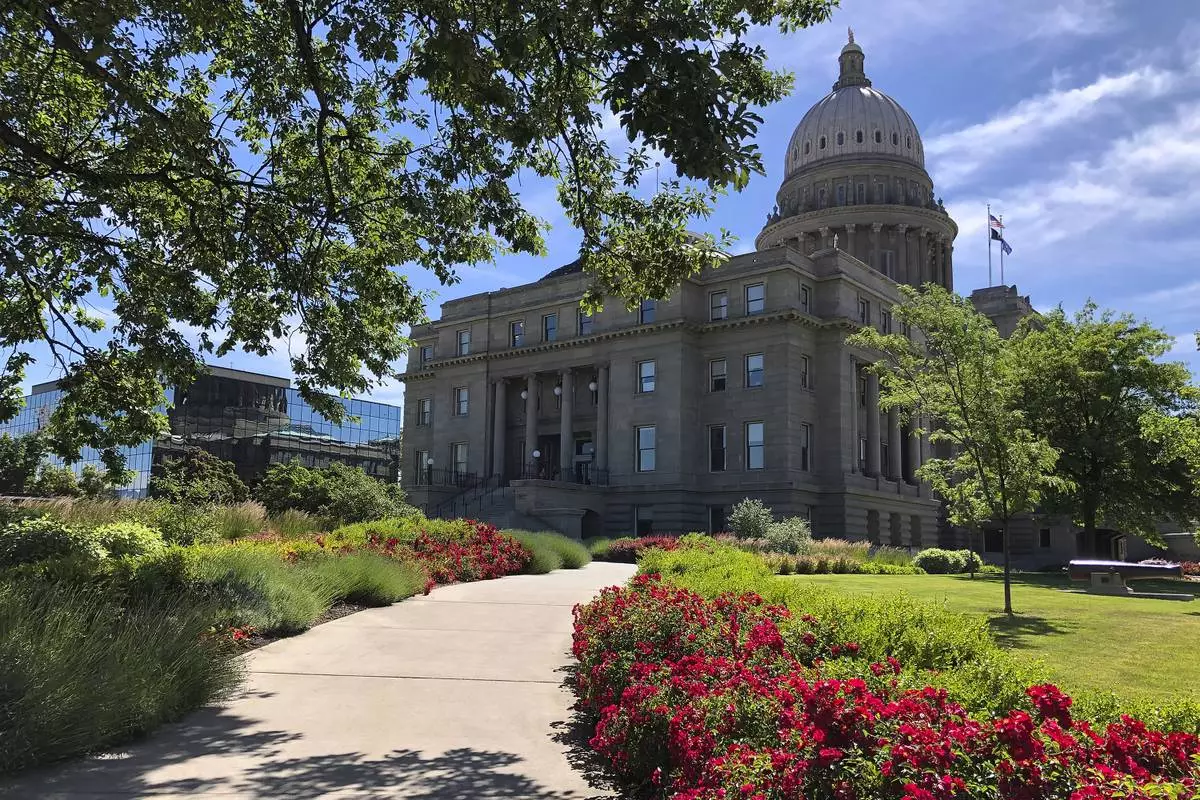
FILE - The Idaho State Capitol in Boise, Idaho, is seen on June 13, 2019. The U.S. Supreme Court's decision on Monday, April 15, 2024, allows the state to put in place a 2023 law that subjects physicians to up to 10 years in prison if they provide hormones, puberty blockers or other gender-affirming care to people under age 18. A federal judge in Idaho had previously blocked the law in its entirety. (AP Photo/Keith Ridler, File)
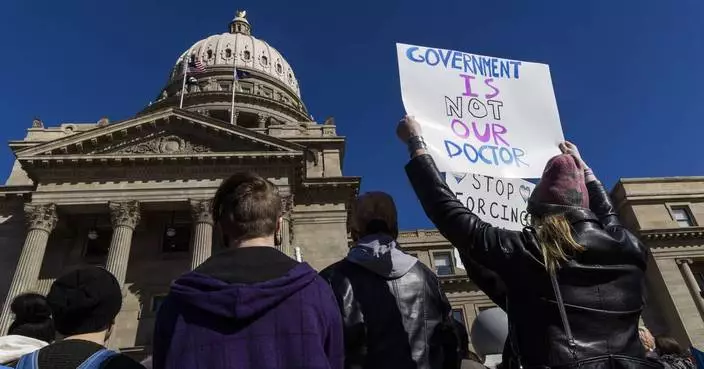
Idaho's ban on youth gender-affirming care has families desperately scrambling for solutions
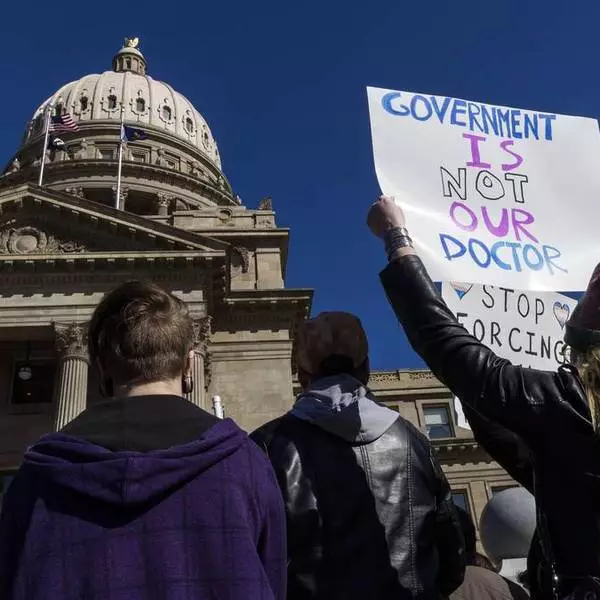
Idaho's ban on youth gender-affirming care has families desperately scrambling for solutions
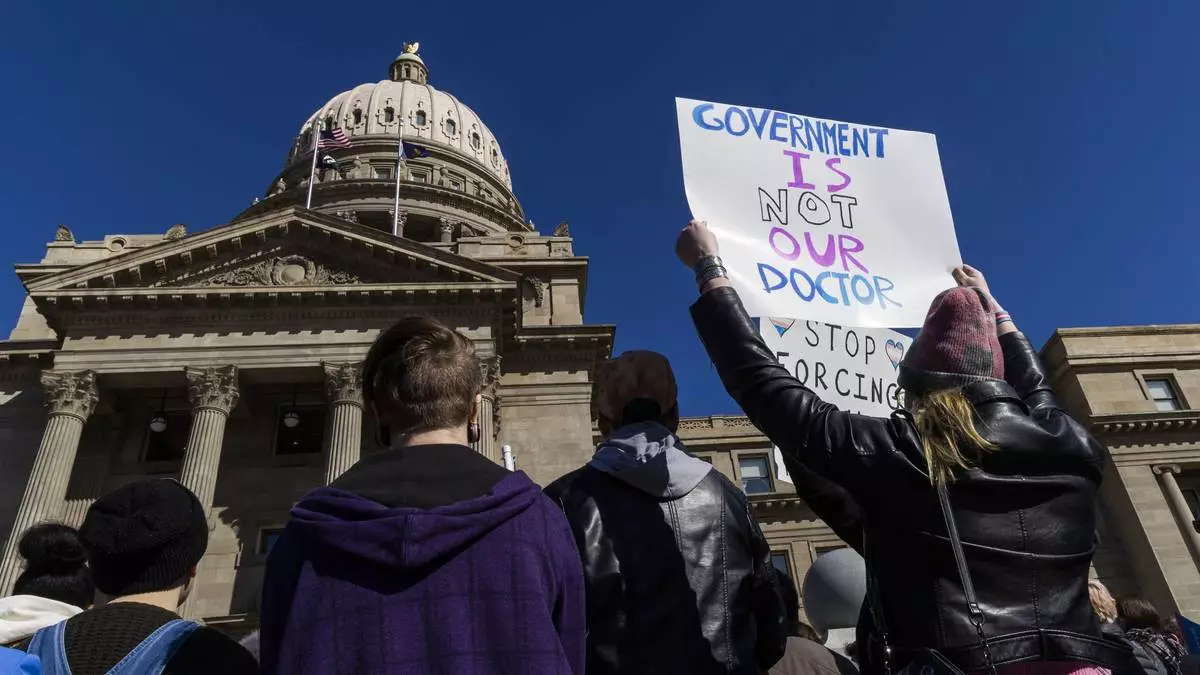
FILE - People gather in front of the Idaho Statehouse in opposition to anti-transgender legislation moving through an Idaho Republican congress, Friday, Feb. 24, 2023, in Boise, Idaho. The U.S. Supreme Court's decision on Monday, April 15, 2024, allows the state to put in place a 2023 law that subjects physicians to up to 10 years in prison if they provide hormones, puberty blockers or other gender-affirming care to people under age 18. A federal judge in Idaho had previously blocked the law in its entirety. (Darin Oswald/Idaho Statesman via AP, File)







